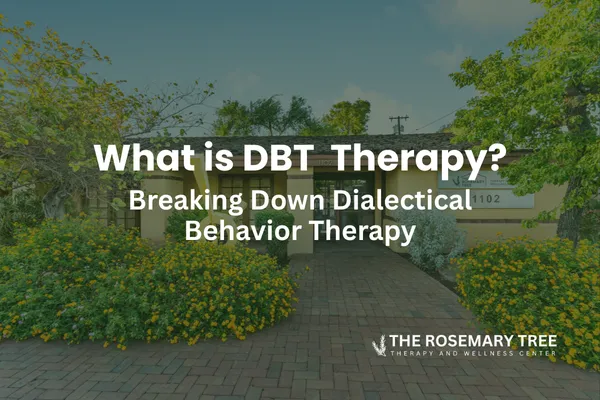
DBT (Dialectical Behavior Therapy): Skills for Managing Intense Emotions
Have you ever felt like your emotions are so strong they take over everything? You’re not alone. Many people experience emotions that feel overwhelming, leading to conflict, impulsive decisions, or even self-destructive behaviors. Dialectical Behavior Therapy (DBT) was designed to help.
At The Rosemary Tree, DBT is one of the evidence-based therapies we offer to help individuals and families learn the skills needed to regulate emotions, improve relationships, and live more balanced lives.
What Is DBT?
DBT, short for Dialectical Behavior Therapy, was originally developed by psychologist Marsha Linehan in the late 1980s to treat people with borderline personality disorder. Today, it’s used widely for anyone struggling with emotional intensity.
The word “dialectical” means combining opposites. In DBT, that means learning to accept yourself as you are while also working to change behaviors that aren’t serving you.
👉 Learn more from the National Institute of Mental Health on how DBT fits within evidence-based psychotherapies.
The Four Core DBT Skills
DBT is practical and skills-focused. It teaches four main sets of skills:
Mindfulness
Learning to stay present in the moment instead of being carried away by racing thoughts or emotions.
Distress Tolerance
Building coping strategies for tough situations without making things worse. These might include grounding exercises, distraction, or self-soothing skills.
Emotion Regulation
Identifying and managing big emotions, so they don’t spiral out of control. This includes understanding triggers and creating healthier responses.
Interpersonal Effectiveness
Improving communication and relationships by learning how to ask for what you need, set boundaries, and manage conflict respectfully.
👉 The Cleveland Clinic provides an excellent breakdown of these core skills.
Who Can Benefit from DBT?
While DBT was created for people with borderline personality disorder, it has proven effective for many challenges, including:
Anxiety and depression
Intense anger or mood swings
Self-harm or suicidal thoughts
Substance use
Eating disorders
Relationship struggles
👉 Read more about DBT’s uses from the American Psychological Association.
Why Choose DBT?
Evidence-Based: Decades of research show DBT works.
Practical Skills: Provides tools you can use in everyday life, not just in the therapy room.
Balanced Approach: Combines acceptance of where you are with motivation to grow.
Supportive: DBT is collaborative; your therapist acts as a coach and guide, not just an observer.
Is DBT Right for You?
If you or your teen feel like emotions are “too much,” or if past therapies haven’t given you concrete tools, DBT might be the right next step. At The Rosemary Tree, our therapists weave DBT techniques into individual sessions and group settings, helping clients build the resilience and skills they need to thrive.
Final Thoughts
Emotions don’t have to control your life. With DBT, you can learn to ride the waves of your feelings instead of being swept away by them. If you’re ready to build skills for managing emotions and creating healthier relationships, we’re here to help you get started.


